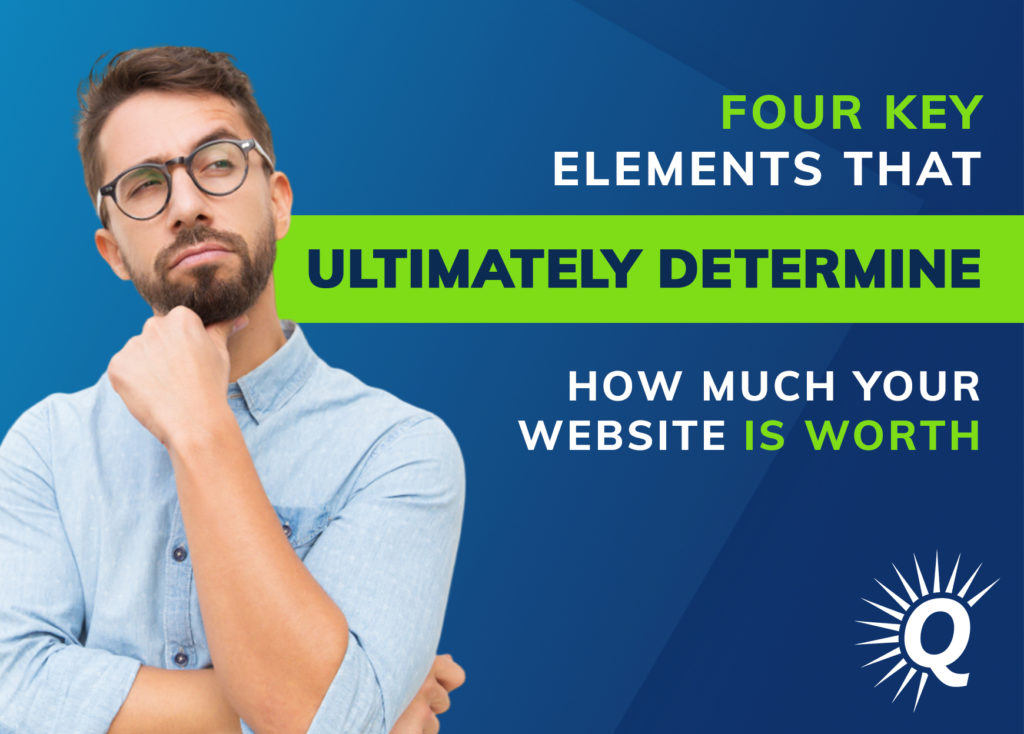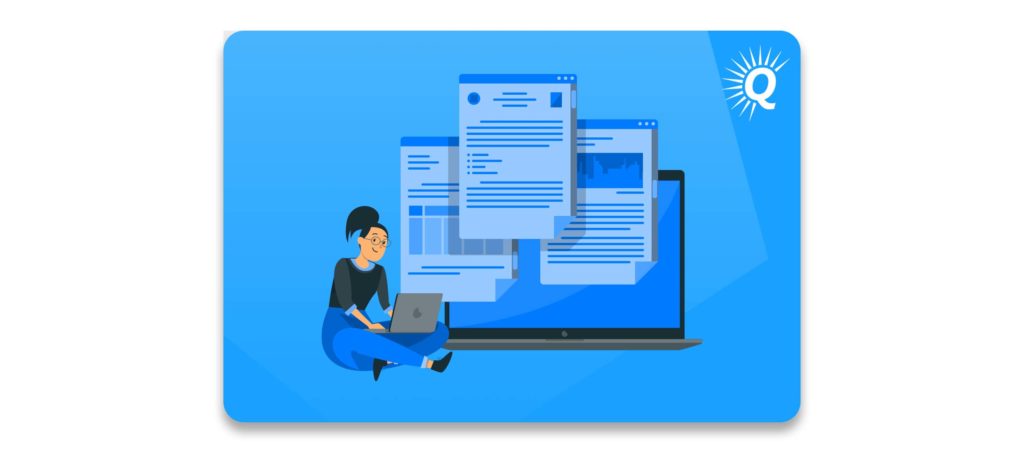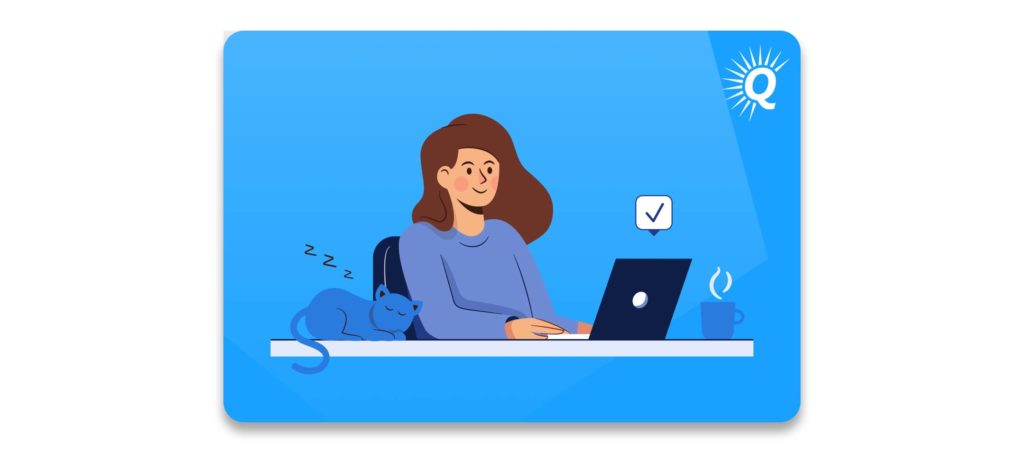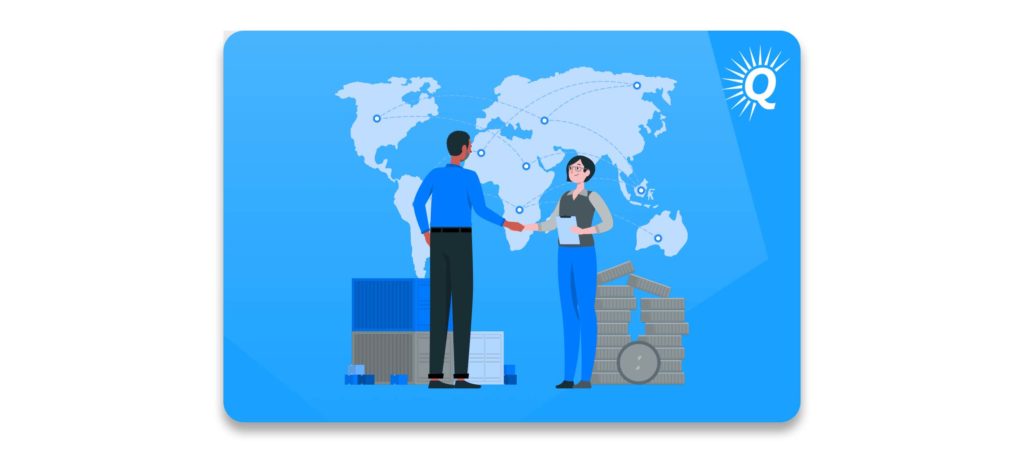Topics:
Never Miss a Beat - Get Updates Direct to Your Inbox
FILTER:


How Much Can You Sell Your Business For? These Four Elements Hold the Answer
By Ian Drogin
There are a lot of questions that pop up when planning to exit your online business, not the least of which is, “how much can you sell your website for?” Understanding how website valuation works is an important part of achieving a successful exit as it allows you to take proactive steps to increase its value and maximize the likelihood of a smooth transition.
In this article, we discuss everything you need to know about selling your website, including:
- How to determine your website’s value
- What you can do to increase its value before selling
- How to find good buyers and avoid “tire kickers”


Basic Formula for Valuing Your Website
Most online businesses and websites are valued using the SDE multiple method. This method uses two basic figures to calculate the value of your business. As the term implies, these include SDE and the multiple.
What Is SDE in Website Valuation?
SDE stands for seller’s discretionary earnings, which are the pre-interest and pretax profits that an online business generates before accounting for noncash expenses, one-time investments, owner’s benefits, and any unrelated income or discretionary expenses. In essence, SDE, or earnings, reflects how much money a website generates for a single owner.
To calculate SDE, start by taking the business’s net profit and then add back the qualifying expenses mentioned above. Not surprisingly, the expenses added back to your business’s bottom line are called add-backs.
Although this definition of SDE is fairly straightforward, things can get a bit tricky when determining which expenses qualify as discretionary. Because your SDE calculation will have a significant impact on your business’s value, it’s essential to get it right. For this reason, it can be immensely valuable to work with an experienced Advisor when valuing your business.
Once you determine your business’s SDE, it’s time to apply the multiple.
“In essence, SDE, or earnings, reflects how much money a website generates for a single owner.”
Thinking of Selling Your Business?
Get a free, individually-tailored valuation and business-readiness assessment. Sell when you're ready. Not a minute before.
What Is the Multiple?
The multiple is a number by which you multiply SDE in order to determine website value. For example, if you have a content website that generates $500,000 in SDE and it’s valued at a 3x multiple, it means that it’s worth $1.5M ($500,000 X 3 = $1.5M).
“There are numerous factors that impact the multiple, but all of these fall into four key categories. We call these the Four Pillars of Value.”
Once sellers understand this basic valuation formula, there’s an obvious question that inevitably follows. What determines the multiple? After all, all else being equal, if a business is valued at a 5x multiple it means that it’s about 60 percent more valuable than a business valued at a 3x multiple.
There are numerous factors that impact the multiple, but all of these fall into four key categories. We call these the Four Pillars of Value.


The Four Key Factors That Determine the Right Selling Price When Selling Your Website
Two businesses with the same earnings may have two completely different valuations. Why? Because buyers don’t just pay attention to past performance; they also examine everything that indicates how it’s likely to perform in the future.
The Four Pillars of Value that ultimately determine how much you can sell your website for include:
- Growth
- Risk
- Transferability
- Documentation
Growth
All else being equal, businesses that have strong, consistent growth trends are more valuable than those that have flatlined or are declining. The more stable your growth trend is, the better.
The most important growth metric is SDE growth. Smart buyers, however, will also pay attention to revenue and profitability trends. Ideally, your profit should scale proportionally with your revenue. If it doesn’t, buyers are definitely going to want to understand why that’s the case. Shrinking profit margins are concerning in all situations, except when the business is reinvesting heavily in high-growth activities.
“As a seller, it’s important to be able to identify and communicate where the opportunities lie in your business.”
In addition to looking at historical growth, buyers will also pay attention to your business’s prospects for future growth. If your website is on the verge of launching five new offers, that may substantially increase its website worth. Similarly, if there are easy opportunities to monetize high-traffic pages on your site, that’s another growth opportunity that could work in your favor.
As a seller, it’s important to be able to identify and communicate where the opportunities lie in your business. The more growth potential buyers can see, the more they’ll be willing to pay to acquire your website.


Risk
Just as growth excites buyers, risk causes them to pump the brakes. After all, who would want to invest in a business that is likely going to collapse right after the acquisition? All else being equal, stable businesses are worth more than those that exhibit clear risks.
If your site generates 90 percent of your website traffic organically through one page, that represents a significant risk. If an algorithm change caused that page to stop performing, your entire business could be in jeopardy. Similarly, if 90 percent of your affiliate marketing revenue comes from promoting one affiliate offer, your business faces a similar risk.
To minimize such risks, it’s important to diversify both website traffic as well as revenue sources. Make sure your site has many different pages that rank for various keywords. Integrating an effective social media strategy can lead to another great traffic source and selling ad space can generate additional monthly revenue. Also, don’t rely on just one or two offers for the bulk of your revenue. Instead, take the necessary steps to implement multiple revenue streams on your site to eliminate single points of failure.
“Just as growth excites buyers, risk causes them to pump the brakes. After all, who would want to invest in a business that is likely going to collapse right after the acquisition?”
Transferability
Buyers want to acquire websites that are thriving, but they also want to be sure those sites will continue thriving under their ownership. Therefore, it’s important to think about how easily your website can be transferred to a new owner without causing major disruptions.
“To make your site more transferable, try to remove yourself from its operations as much as possible.”
Some online businesses can be easily transferred to a new owner. For example, sometimes it’s as simple as changing the user names and passwords for the various accounts the online store uses. In other situations, it can be significantly more difficult, adding an entirely new level of complexity to the selling process.
For example, let’s say you have a blog in which you share your personal opinions and experiences in the first person. Maybe you even have lots of photos and videos of yourself scattered throughout the site. If that’s your situation, it’s likely going to be more difficult to find an interested buyer, even if your site is highly profitable and exhibits minimal risks.


To make your site more transferable, try to remove yourself from its operations as much as possible. This includes removing your personal likeness from the branding, as well as removing yourself as a key operating role. If you can do that and show that the small business continues to run smoothly, it will be significantly more desirable among buyers.
Documentation
All else being equal, a business will be worth more if the website owner has maintained clear and organized records. Not only does sound documentation show buyers you’ve taken a diligent approach to running your website, but it also allows them to gain a deeper understanding of how your business operates. The more a potential buyer can understand, the more likely they’ll feel confident they, too, can succeed in the owner’s role.
There are many areas in which documentation applies. Ideally, you should be able to easily provide all invoices and banking statements in organized folders. Additionally, buyers are going to want to see organized financials that allow them to understand trends and seasonality on a granular level. If your content site sells physical products, then accrual accounting is a must!
“All else being equal, a business will be worth more if the business owner has maintained clear and organized records.”
Another key aspect of documentation is your standard operating procedures, or SOPs. If you can provide detailed SOPs that explain how your business operates, it will give most buyers a huge confidence boost. Instead of guessing what they should do to run your business, they can simply follow the procedures you’ve laid out in an organized manner. In many cases, your documentation practices can greatly impact how much you can sell your website for.
How to Find a Buyer for Your Website
Once you’ve prepared for your website sale, it’s time to find the right buyer. There are a few different approaches you can take. Often, the size of your website will play an important role in determining which path to choose.


Listing on a public marketplace
For smaller websites valued below $100,000, it might make sense to list your business yourself on a public platform. When you go this route, you’ll typically create a marketing package, post your listing, and then wait for potential buyers to inquire about your business.
Once you enter negotiations with buyers, you’ll want to be sure you’re asking the right questions to ensure you’re working with a serious party. For example, ask about their relevant skills and knowledge, their acquisition financing strategy, and whether they’ve run similar businesses in the past. If it’s clear they don’t have the funds or internet marketing experience to acquire your business and succeed, you may want to avoid working with them.
When selling your business yourself, you’ll want to be sure you hire a good attorney to create your asset purchase agreement and other important legal documents.
“Once you enter negotiations with buyers, you’ll want to be sure you’re asking the right questions to ensure you’re working with a serious party.”
Although listing your business yourself has some advantages, there are also some clear disadvantages. First of all, without having a thorough understanding of the acquisition marketplace, it can be difficult to understand what to consider when valuing your domain name or website. This can lead to either undervaluing or overvaluing, neither of which is ideal. If you undervalue your business, you’ll likely leave money on the table. If you overvalue it, you’ll immediately lose credibility with buyers and have a harder time selling it.
Additionally, it can be difficult to screen potential buyers if you don’t have a lot of experience facilitating business acquisitions. This can lead to frustrating social interactions or even entering into an agreement with a difficult buyer. For these reasons, owners of larger businesses are usually better off working with a third party who has the skills and experience to facilitate a successful deal.
Buy a Profitable Online Business
Outsmart the startup game and check out our listings. You can request a summary on any business without any further obligation.
Working with a qualified business Advisor
Working with a qualified business Advisor offers many advantages you can’t experience if you list your business on your own. First of all, experienced Advisors have a thorough understanding of the valuation process, which ensures your ecommerce website is priced correctly when it goes to market.
“Another advantage of working with an Advisor is the privilege of accessing their network. Reputable brokers have extensive lists of qualified buyers, including many whom they’ve worked with in the past.”
Additionally, if you consult with an Advisor early on in the process, they can help you take proactive steps to maximize website value before going to market. In many cases, this can add tens or even hundreds of thousands of dollars to your business’s value. You’ve already invested significant time and energy to build a website, and an Advisor can help maximize the website value you receive at exit.
Access to qualified buyers
Another advantage of working with an Advisor is the privilege of accessing their network. Reputable website brokers have extensive lists of qualified buyers, including many whom they’ve worked with in the past. And because the Advisor is representing your business, your business benefits from the credibility and trust your Advisor has established with their network. This translates into more interest and higher offers from potential buyers.


Your website broker also screens potential buyers, which minimizes the likelihood of working with the wrong party. Because brokers have extensive experience, they typically know how to spot qualified buyers and avoid the “bad” ones. This can make your life much easier, saving you significant time and headaches.
Once buyers start making offers, your broker can help you evaluate those offers to understand the pros and cons of each. They’ll also make sure you understand all of the implications of the deal terms, payment structure, and any details included in the offer.
If you decide to accept an offer, your Advisor will help facilitate due diligence as well as the transition. Having someone to answer your questions throughout the process can prove invaluable in making the process run smoothly.
How to Get the Best Price Selling a Website
We’ve already mentioned that a qualified business Advisor can help ensure you get the best price when selling your website. There are two basic ways they can help you achieve this. The first is by helping you take the right steps to prepare for a successful exit. The second is by following a proven process when you go to market.
Establish a long-term exit strategy
To maximize your business’s value, it’s important to think ahead and establish a long-term exit strategy. In almost all cases, it’s immensely helpful to get a free business valuation 12–24 months before listing your business for sale.
When you get a free valuation, your business broker will examine all aspects of your business. In addition to providing you with an estimate of its monetary value, your broker will also point out the highest-leverage changes you can implement to improve its value. This provides you with a clear road map to increase your business’s value leading up to your big exit.
“Although you want to put your best foot forward, it’s also important to remember that honesty and transparency are key!”
Because each business is different, each valuation is performed on an individual basis. In some cases, your broker may point out critical risk factors that need to be addressed in order to increase value. In other cases, they may provide you with guidelines to improve your bookkeeping or documentation practices. The valuation is an opportunity for you to gain insight into what you can do to grow your business and maximize its value.
Once you have your road map, the next step is to take action and implement the changes that lead to value. Sometimes, such changes can be completed rather quickly. At other times, it may require a bit of time to make the necessary pivots in your business.


Follow a proven process for selling your business
You’ve planned ahead, you’ve followed an effective exit strategy, and now you’re ready to list your business for sale. In order to make your hard work pay off, it’s important to have the right approach when going to market.
As in any form of sales, it’s essential that you present your business well when listing it for sale. This includes providing all necessary financial information and documentation, as well as being able to articulate your story. Smart buyers will want to understand everything from how your business makes money to how operations are managed on a day-to-day basis. The more complete and comprehensive your story is, the more desirable your business will be.
Honesty is key
Although you want to put your best foot forward, it’s also important to remember that honesty and transparency are key! Never mislead potential buyers or omit important information. In fact, be sure to communicate any challenges or weaknesses upfront. (i.e. declining organic traffic or paid traffic). Not only is that the right thing to do, but it will also help prevent the deal from going awry later on when the truth comes out. After all, the truth will come out during the due diligence process.
Conducting yourself well throughout the selling process instills confidence in potential buyers. Although they won’t buy your business simply because you’re a good person, it will make a difference when it comes time for them to make an offer. If they feel confident you’ll be there to support them immediately after the acquisition, that could go a long way in making them want to work with you.
Finally, make sure your business is seen by lots of qualified buyers! For example, if your business isn’t listed and a buyer reaches out to you directly, you should avoid selling to them until other buyers have also had a chance to make offers. Following this advice will increase the number of potential buyers and in turn lead to a higher purchase price. You wouldn’t sell your home to someone who came knocking on your front door, and you shouldn’t sell your business that way either.
Thinking of Selling Your Business?
Get a free, individually-tailored valuation and business-readiness assessment. Sell when you're ready. Not a minute before.





